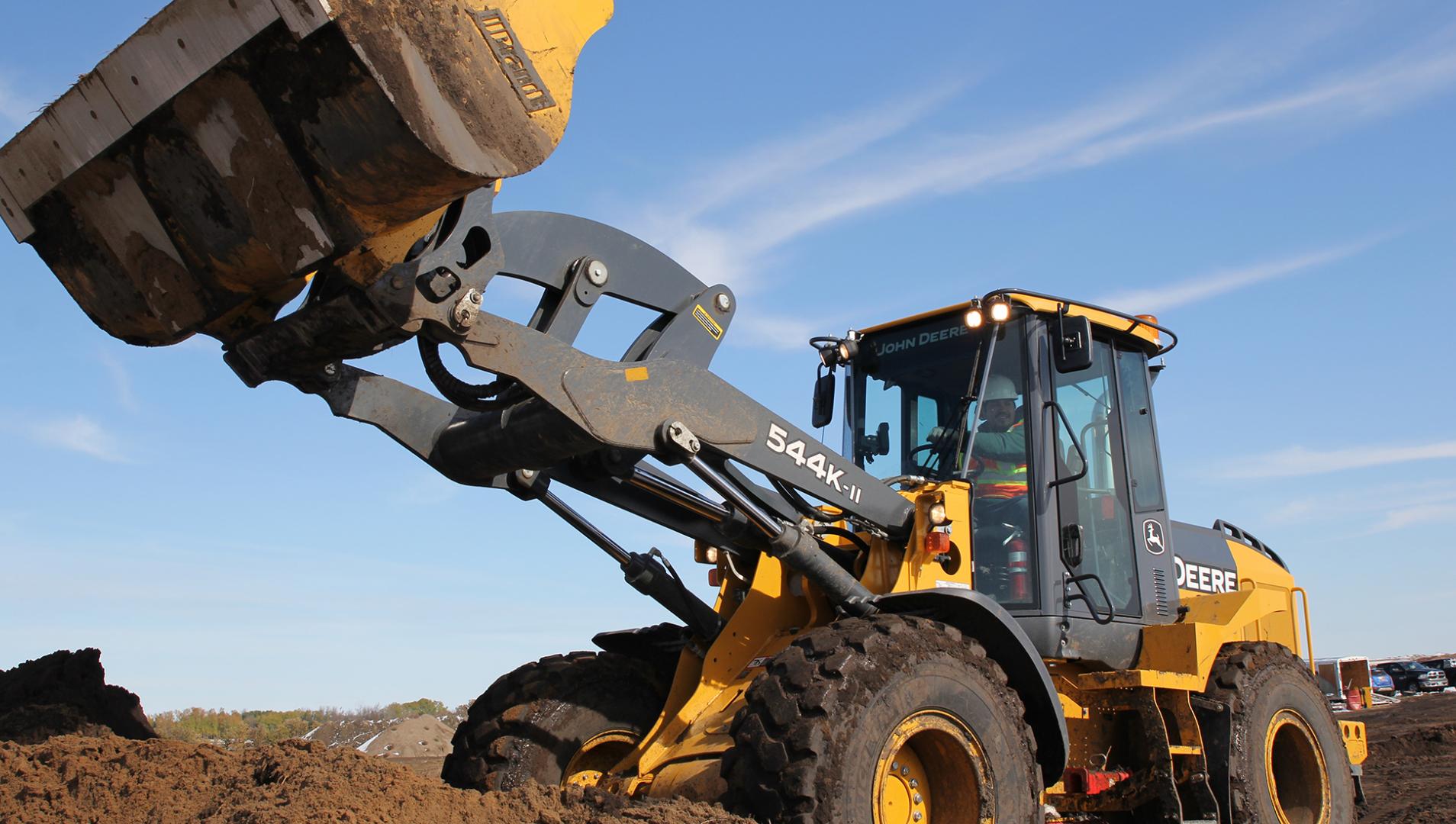Heavy Equipment Operator
Overview
This six-week in-class program provides students with a combination of training in fundamental heavy equipment operator skills as well as related training in surveying, safety and equipment servicing. Using high-end computer simulation equipment, students gain experience and confidence, before moving to hands-on heavy equipment operating.
Following the in-class program, students complete 120 hours of practicum. Practicum may be paid or unpaid at employer’s discretion, students are covered by Worker’s Compensation while on practicum. While Assiniboine strives to find practicum placements for students, the responsibility to find a practicum placement ultimately lies with the student.
Admissions
Admission Requirements
- A minimum of Grade 10 or equivalent
- Valid Class 5 Driver's License
If you received your education outside of Manitoba, please review the equivalent admission requirements: Interprovincial or International.
English is the language of instruction at Assiniboine. All applicants educated outside of Canada or in a country not on the test exempt list are expected to meet the English language proficiency requirements.
Recommendations
The majority of the work in this trade is outdoors. It is important that people entering the trade have strong mechanical aptitude, communication skills, mathematical ability, excellent visual and depth perception and a high degree of hand-foot-eye coordination.
READY TO TAKE THE NEXT STEP IN YOUR EDUCATION JOURNEY?
Start your online application today and join Assiniboine College!
DON'T MEET ADMISSION REQUIREMENTS?
If you don’t meet admission requirements, visit our Centre for Adult Learning to upgrade courses.
Careers & Connections
Careers
Heavy equipment operators operate heavy equipment used in the construction and maintenance of roads, bridges, airports, gas and oil pipelines, buildings and other structures, in surface mining and quarrying activities and in material handling work.
Connections
Assiniboine has a number of agreements with other colleges, universities and professional organizations, making it possible to apply credit taken at Assiniboine to programs at other institutions. For information on agreements, see Articulation Agreements.
Upon completion of this program, graduates will have the following certifications:
- First Aid
- Workplace Hazardous Materials Information System (WHMIS)
- Ground Disturbance
Tools & Supplies
Program Checklists, Textbooks, and Supplies
Program Checklists:
Supplies:
Technology Requirements
Students in this program are expected to have a computer at home with internet access that meets the technical needs outlined by the program. For more details, see At-Home Computing.
Courses & Costs
Cost
The tuition cost for this program in Brandon is $9,995 (not government-funded). A nonrefundable tuition deposit of $2,000 must be paid to hold your seat; upon acceptance into the program, this amount will be deducted from the total tuition cost.
The tuition cost for this program in Dauphin is $1,160 (government-funded). Course fees are $580, Students' Association fees are $320, and Textbooks and Supplies are $1,310.
All fees are estimated and subject to change without notice.
For more information, visit the Fees and Charges page.
Courses
To receive a Heavy Equipment Operator certificate of achievement, students must successfully complete 240 academic hours and 120 practicum hours. Course offerings are subject to change and may vary by intake.
Basic Survey Principles (WRKP-0052) | 40 Hours
This course introduces the student to basic surveying as performed on a construction site. Students will learn the basics of differential leveling, grade calculations and turning points using level, tape, construction lasers and the interpretation of GPS coordinates. Students will be introduced to site blueprints and learn how to interpret features, elevations, bench marks and specifications. Students will also be introduced to stake marking, grid layout, calculating material removal and fills.
Heavy Equipment Operation (OTTR-0045) | 120 Hours
This course will introduce students to the basic
operation of a number of heavy equipment machines to perform fundamental procedures required for the operation of the equipment on the job site. The course will consist of a simulation lab that will provide students with the opportunity to repeatedly and safely practice basic skills associated with machine operations. This lab will develop proficiencies that enable students to move onto real equipment. After completing the simulation lab students will undertake on-the-equipment training directly supervised by an instructor.
Safety Principles (WRKP-0050) | 40 Hours
This course of study consists of Manitoba work-site
practices involving safety and safe operating practices of heavy equipment. Applicable reports and procedures will be identified. Safety regulations, hand signals, and personal protective equipment will be studied, as well as rigging and equipment transportation methods. The course will also cover First Aid/CPR, WHMIS, Ground Disturbance, and Dig Alert on works.
Service Principles (WRKP-0051) | 40 Hours
This course in heavy equipment maintenance fundamentals focuses on the use of tools, equipment and material necessary to inspect and maintain heavy equipment machinery. It will involve inspection and preventative maintenance procedures following the manufacturer's recommendations for the equipment. Time will be spent on using the tools required to perform routine maintenance and safe use and storage of fluids like diesel fuel, oil and hydraulic oil or fluid.
Work Practicum* | 120 Hours
The Heavy Equipment Operator practicum component is on-the-job training provided by the college and employers on an actual piece of heavy equipment. This course consists of a 120-hour work practicum in the industry which can be paid or unpaid at the employer's discretion.
*course number is based on machinery specialization
FAQs
How long is the Heavy Equipment Operator program?
The program is six-weeks in-class with 120 hours of practicum.
Do I need textbooks for the Heavy Equipment Program?
No, books are included in the cost of tuition.
Are there any physical requirements of the Heavy Equipment Operator program?
The majority of the work performed in this trade is outdoors and involves going up and down equipment frequently. It is important to have excellent visual capacity, depth perception, and a high degree of hand-foot-eye coordination.
How many seats are available in the Heavy Equipment Operator Program?
There are only 8 seats available in the program.
Which equipment will I be trained on in the Heavy Equipment Operator program?
Students will be trained on various pieces of equipment including but not limited to: excavator, grader, wheel loader, and backhoe loader. However, your Certificate of Achievement will indicate a single equipment specialization. In seat training will be the student’s choice.
Students may receive additional specializations by completing an additional work practicum of 120 hours. An additional fee will apply to add additional specializations.
Does Assiniboine arrange my practicum?
Assiniboine strives to find practicum placements for students, however, the responsibility to find a practicum placement ultimately lies with the student.
Will I be paid for the practicum?
The practicum may be paid or unpaid and it at the discretion of the employer.
What happens if I get hurt while on practicum?
While on practicum, students are covered by Worker’s Compensation.
Are there student loans or scholarships for this program?
This program is not eligible for the Canada Student Loan Program or Assiniboine scholarships.


